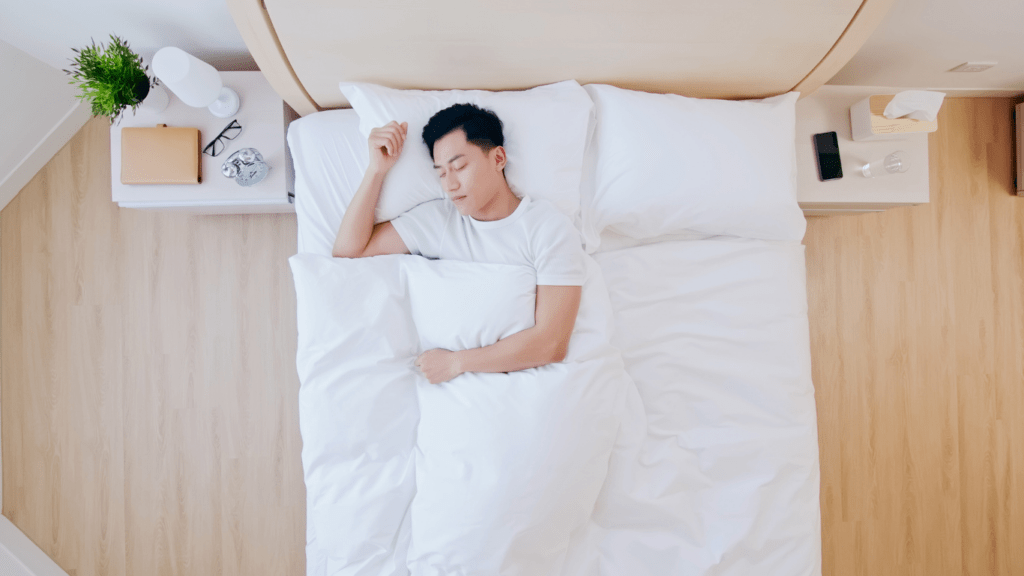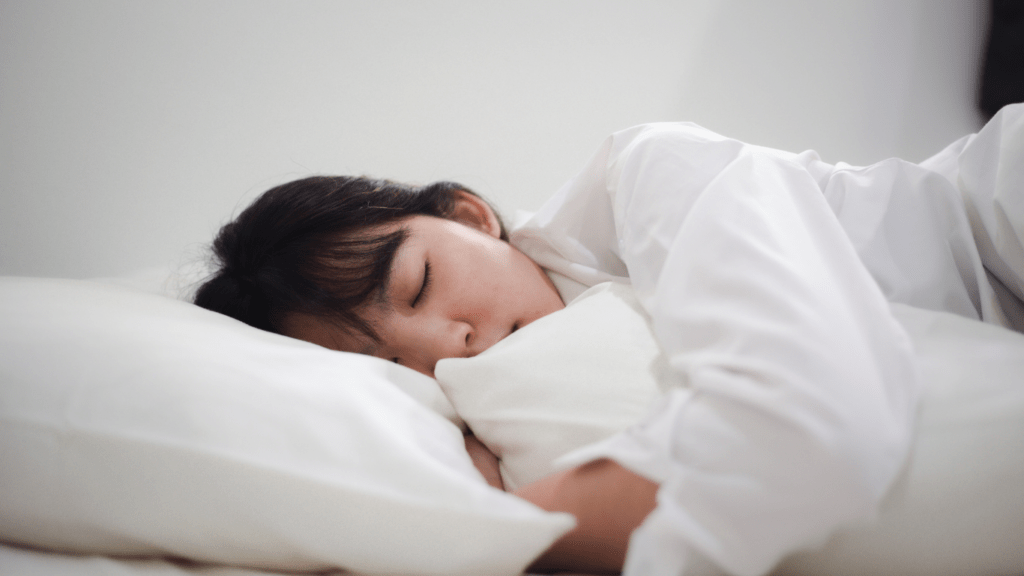Why Sleep Quality Matters
Sleep quality directly influences physical and mental health. Restful sleep supports overall well-being and helps prevent long-term health issues.
The Impact of Sleep on Physical Health
Sleep affects bodily functions critical to maintaining health. During sleep, the body repairs tissues, strengthens the immune system, and regulates hormones like cortisol and insulin. Insufficient sleep has been linked to increased risks of chronic conditions such as:
- heart disease
- diabetes
- obesity
For example, a study published in Nature and Science of Sleep highlights how poor sleep disrupts metabolism and contributes to weight gain.
Regular, quality sleep also enhances physical performance and recovery. Athletes experience faster muscle recovery and improved endurance with consistent sleep patterns compared to disrupted rest. Sleep plays a vital role in physical resilience.
Effects of Poor Sleep on Mental Well-Being
Mental well-being heavily depends on sleep patterns. Quality sleep sharpens focus, supports decision-making, and enhances learning. Conversely, poor sleep can lead to impaired cognitive abilities and reduced emotional regulation. Chronic sleep deprivation correlates with heightened anxiety, depression, and mood swings. For instance, the CDC reports that individuals sleeping fewer than six hours nightly are more prone to developing mental health conditions.
Sleep disruptions also affect productivity and interpersonal relationships. Irritability, memory lapses, and difficulty concentrating often cause strain in work and social interactions. Prioritizing good sleep is essential for mental clarity and emotional balance.
Common Causes of Poor Sleep
Poor sleep often stems from a combination of factors that disrupt rest and recovery. Understanding these causes can help identify and address specific challenges affecting sleep quality.
Lifestyle Factors
Choices and routines significantly impact sleep duration and quality. Consuming caffeine or alcohol late in the day can interfere with falling or staying asleep. Irregular sleep schedules, common with shift work or late-night activities, disrupt the body’s natural circadian rhythm. Overuse of electronic devices, especially before bed, suppresses melatonin production due to blue light exposure. High stress and demanding schedules also make it difficult for many to unwind and relax before sleeping.
Medical Conditions
Certain health issues can prevent restful sleep. Chronic conditions like sleep apnea interrupt breathing and disrupt sleep cycles. Restless legs syndrome causes uncomfortable sensations that lead to repeated night-time awakenings. Mental health disorders, including anxiety and depression, often interfere with the ability to fall asleep or stay asleep. Gastroesophageal reflux disease (GERD) can cause discomfort, particularly when lying down, further impacting sleep.
Environmental Disruptions
Sleep environments play a crucial role in rest quality. Bright lighting, excessive noise, and temperatures that are too high or too low can make falling asleep or staying asleep challenging. Uncomfortable bedding or an unsupportive mattress may lead to physical discomfort or restless sleep. Frequent disruptions caused by pets, a partner who snores, or young children can also fragment sleep, reducing overall restfulness.
Practical Tips to Improve Sleep Quality

Improving sleep quality begins with practical adjustments to daily habits and routines. Focusing on your environment, pre-sleep habits, and lifestyle choices can help foster restful sleep.
Creating a Sleep-Conducive Environment
- A comfortable, quiet space supports better sleep.
- I recommend keeping bedrooms dark using blackout curtains and minimizing noise with earplugs or sound machines.
- Set the thermostat to a cool temperature, ideally between 60-67°F, which studies indicate promotes optimal sleep.
- Comfortable mattresses and pillows provide proper support, so consider upgrading if they’re over 7-10 years old or causing discomfort.
- Limit light exposure from screens or use blue light-blocking glasses after sunset.
Establishing a Relaxing Bedtime Routine
A calming pre-sleep routine signals the body it’s time to rest. I suggest practicing consistent sleep schedules, going to bed and waking up at the same times daily, even on weekends. Activities like reading, meditation, or gentle stretching can ease stress and improve relaxation. Avoid stimulating activities, such as watching TV or scrolling social media, 30-60 minutes before bed. Include techniques like deep breathing or progressive muscle relaxation for additional calming effects.
The Role of Diet and Exercise in Sleep
Balanced nutrition and regular movement enhance sleep quality. Avoid large meals, caffeine, and alcohol at least 4-6 hours before bedtime to prevent disruptions caused by digestion or stimulant effects. Prioritize foods rich in tryptophan, magnesium, and melatonin, such as turkey, nuts, and tart cherries, to naturally support better sleep. I’ve found that 30 minutes of moderate exercise, like brisk walking or yoga, earlier in the day contributes to deeper, more restorative rest, though intensive workouts close to bedtime may hinder relaxation.
The Importance of Consistent Sleep Patterns
Maintaining consistent sleep patterns positively affects overall health and well-being. Regular sleep schedules align the body’s internal clock, leading to better sleep quality.
Benefits of a Regular Sleep Schedule
Following a regular sleep schedule improves energy, focus, and productivity. It stabilizes the circadian rhythm, which governs the sleep-wake cycle, ensuring deeper and more restorative sleep. Consistency helps reduce sleep latency, allowing for faster transitions into sleep.
Studies from organizations like the National Sleep Foundation demonstrate a strong link between regular sleep and reduced risks of cardiovascular issues, obesity, and metabolic disorders. Consistent sleep supports mental health by enhancing emotional regulation and lowering the likelihood of stress or mood-related conditions. For instance, individuals with stable routines often report fewer instances of anxiety and a greater sense of calm.
Regular schedules also improve physical performance by promoting muscle recovery and immune function. Athletes or fitness enthusiasts practicing fixed sleep timings recover more efficiently from intense physical activities.
How to Break Bad Sleep Habits
Replace irregular habits with a fixed bedtime and wake-up routine. Track sleep times using phone apps or journals to identify patterns and deviations. Gradually adjust sleep times for better alignment with natural rhythms, adding 15–30 minutes nightly if needed.
Limit evening exposure to blue light from devices to reduce melatonin disruption. Switch to relaxing pre-sleep activities like light reading or meditation. Replace excessive caffeine or alcohol consumption late in the day with sleep-supportive alternatives, such as herbal teas.
Address sleep-disrupting factors in your surroundings. Keep the sleeping environment cool, quiet, and dark to eliminate distractions. Use white noise machines for external disturbances or blackout curtains for intrusive light.
Set actionable goals to monitor progress and reinforce positive habits. If difficulty persists due to underlying health conditions, consult sleep specialists for guidance.





